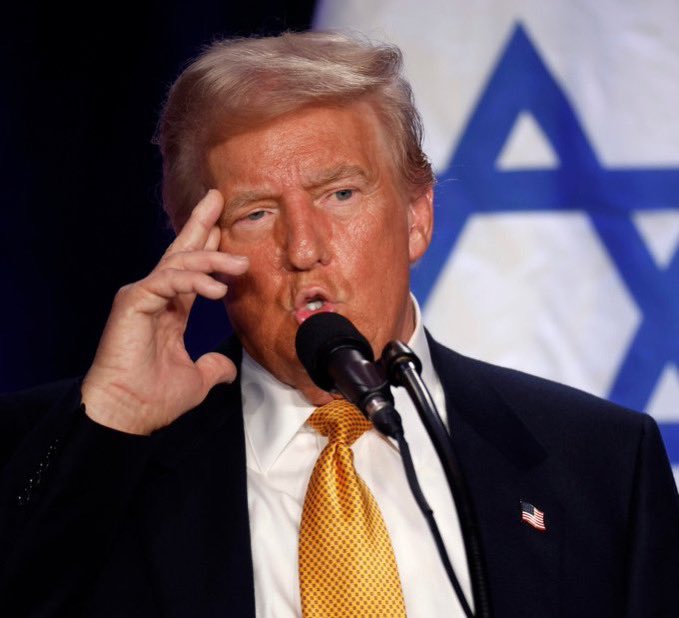On August 4, 2025, a significant intervention emerged in Israeli and international politics: more than 600 retired Israeli security officials—including prominent former heads of the Mossad and Shin Bet intelligence services, top military commanders, and ex-diplomats—publicly appealed to US President Donald Trump, urging him to pressure the Israeli government to end its prolonged war in Gaza.

The Letter and Its Signatories
The open letter, notably signed by such figures as former Mossad chiefs Tamir Pardo, Efraim Halevy, and Danny Yatom, as well as a series of former Shin Bet directors like Ami Ayalon and Nadav Argaman, reflects unparalleled concern within Israel’s professional security establishment. Among the signatories were also high-profile military leaders, including ex-prime minister and chief of staff Ehud Barak and former defense minister Moshe Yaalon, demonstrating a broad consensus across Israel’s old guard.
Key Arguments and Rationale
In their correspondence—which was made public and shared widely in Israeli and international media—the retired officials argued that while the war in Gaza originally had legitimate defensive goals following Hamas’s attack on October 7, 2023, the continued military campaign had outlived those aims. As former Shin Bet director Ami Ayalon asserted,
“At first, this war was a just war, a defensive war, but when we achieved all military objectives, this war ceased to be a just war.” Many of the signatories echoed this sentiment, warning that Israel’s ongoing campaign was “causing Israel to lose its security and identity” and that it was time to seek alternative strategies.
The letter emphasized that, in the security officials’ “professional judgment, Hamas no longer poses a strategic threat to Israel.” The signatories argued that the Israeli military had already accomplished the possible objectives by force—such as the dismantling of Hamas’s military structure and governance. The only remaining, and most important, goal, they asserted, was to bring all Israeli hostages home—a goal they believed could only be achieved through a negotiated deal and not continued warfare.
Calls for Trump’s Involvement
The ex-officials appealed directly to President Trump, citing his unique standing with the Israeli public and government. They wrote that only Trump had “credibility with the majority of Israelis” and could realistically “steer” Prime Minister Benjamin Netanyahu toward accepting a ceasefire. They recalled Trump’s role in brokering an end to hostilities in Lebanon and insisted, “Time to do it in Gaza as well.” Their hope: that after a ceasefire, the US president could leverage his influence to construct a regional coalition, potentially including Arab states, to help oversee Gaza’s transition toward alternative governance via a reformed Palestinian Authority, rather than continued Hamas control.
Broader Context and Intensifying Pressure
This dramatic step by veterans of Israel’s security sector comes against a backdrop of mounting international and internal pressure on Netanyahu’s government. The war, now approaching its twenty-third month, has left more than 60,000 Palestinians dead and produced a humanitarian crisis of immense proportions in the Gaza Strip—a fact repeatedly cited by global leaders, the United Nations, and aid organizations calling for a ceasefire and wider access for humanitarian relief. International courts have also issued arrest warrants for Netanyahu and other senior officials for war crimes, underlining the intensifying legal and moral scrutiny facing Israel’s leadership.
Within Israel, debate has deepened as families of hostages and moderate members of society increasingly question not only the war’s humanitarian toll but also its efficacy and future. Some right-wing and pro-settler elements in Netanyahu’s coalition continue to support the expansion and even occupation of parts of Gaza, but the intervention by high-ranking retired officials introduces powerful voices reminding the public and policymakers of different paths forward.
Conclusion
The coordinated appeal by over 600 retired Israeli security officials to US President Donald Trump underscores a profound moment of reckoning within Israel about the goals, morality, and consequences of the Gaza war. Their call for American intervention, for de-escalation, and for a diplomatic end to the conflict is both a critique of existing policy and a roadmap for an alternative future—one that prioritizes hostage return, regional stability, and a fundamental rethinking of Israel’s security strategy in a deeply fractured region.

